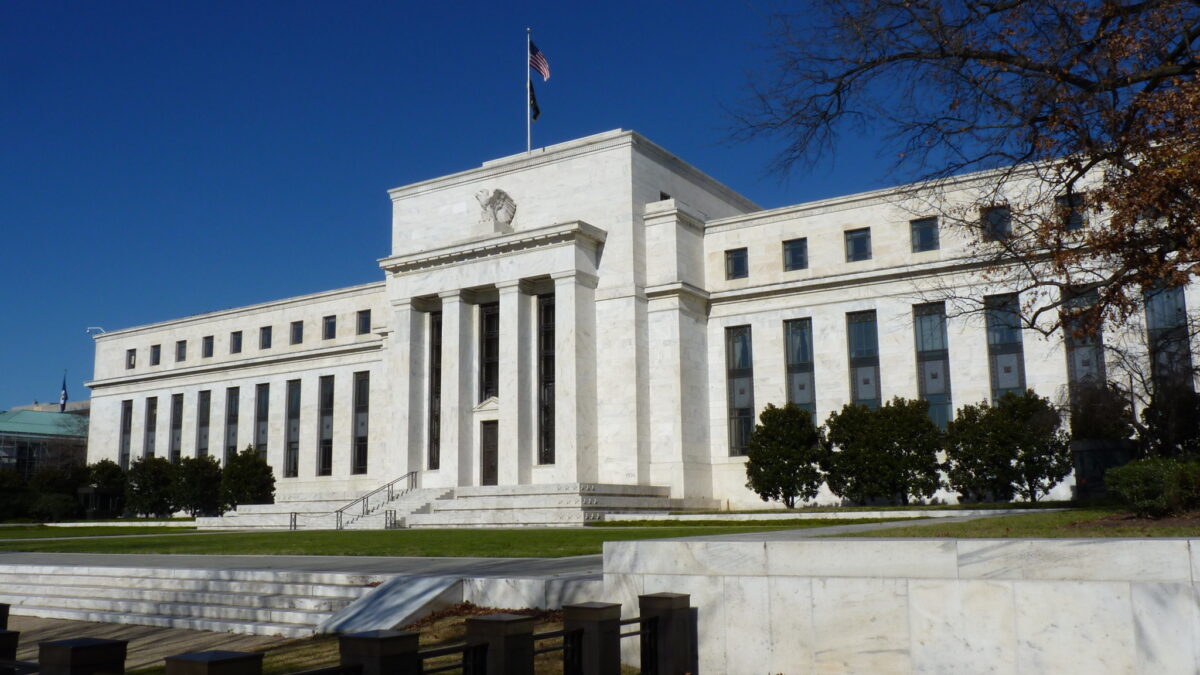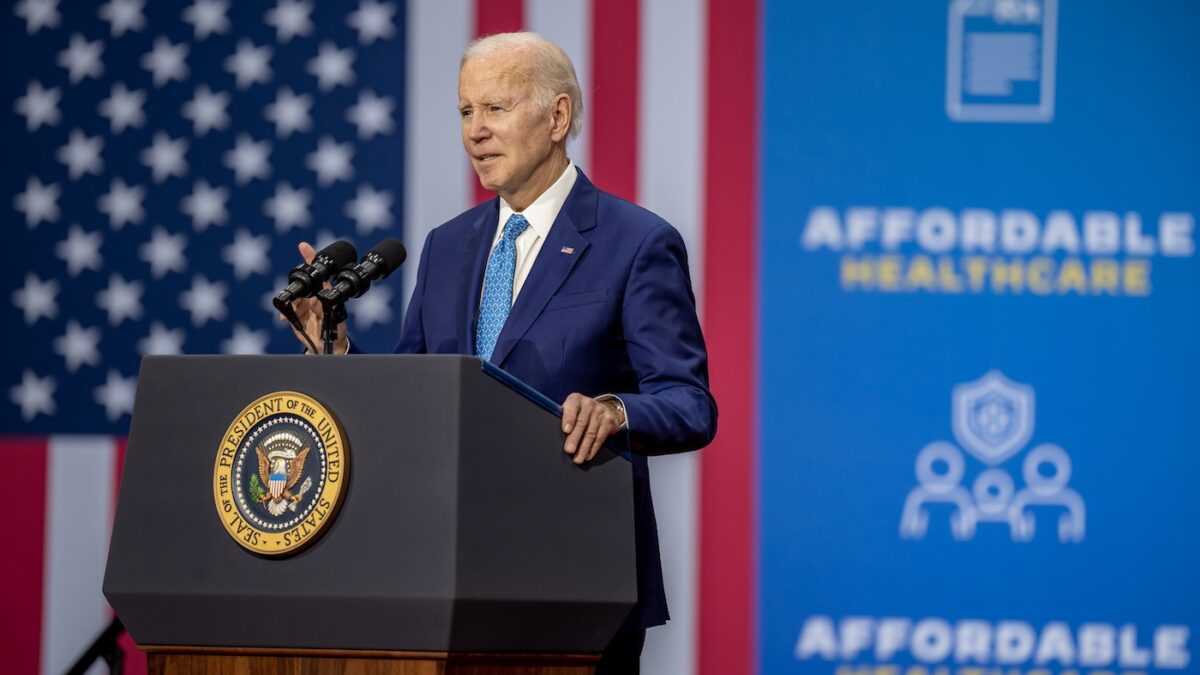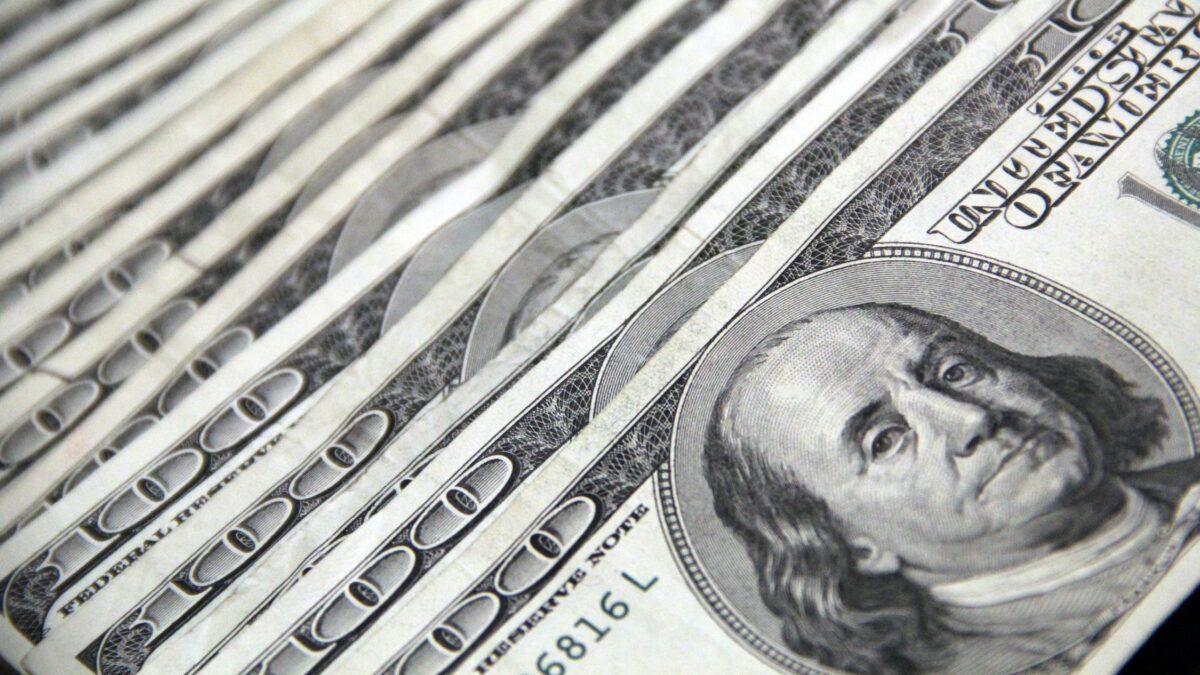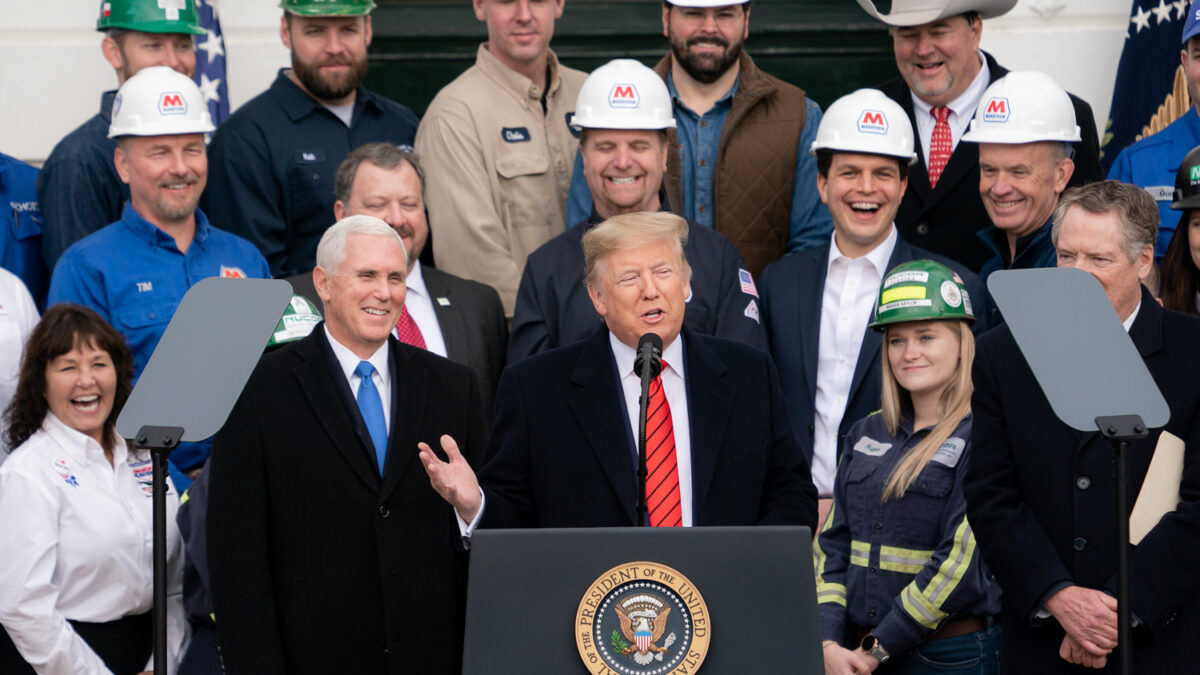The Obama Boom is finally here. Gross domestic product grew by a healthy 5 percent in the third quarter, the strongest growth we’ve seen since 2003. Consumer spending looks like it’s going to be strong in 2015, unemployment numbers have looked good, buying power is up and the stock market closed at 18,000 for the first time ever. All good things. So what happened?
Note: The quarter before Obama took office, the U.S. economy SHRUNK by 8.9%, worst since 1930. Last quarter it GREW by 5%, best since 2003.
— David Axelrod (@davidaxelrod) December 24, 2014
Note: Contrasting the most severe recessionary quarter of a six-year presidency—one filled with extravagant and unmet economic promises—with its best quarter, might strike you as a bit hackish. But let’s go with it.
Axelrod isn’t alone is claiming political credit for economic success, and the Obama administration certainly isn’t the first to try and take the glory. But if activist policies really had as big an impact on our economic fortunes as DC operatives claim, I only have one question: Which policy did Barack Obama enact that initiated this astonishing turnaround? We should definitely replicate it.
Because those who’ve been paying attention these past few years may have noticed that the predominant agenda of Washington was doing nothing. It was only when the tinkering and superfluous stimulus spending wound down that fortunes began to turn around. So it’s perplexing how the same pundits who cautioned us about gridlock’s traumatizing effects now ignore its existence.
Here, for instance, is a Paul Krugman column titled the “Obama Bounce.” The problem is that the author fails to justify his headline. It begins like this:
Suppose that for some reason you decided to start hitting yourself in the head, repeatedly, with a baseball bat. You’d feel pretty bad. Correspondingly, you’d probably feel a lot better if and when you finally stopped. What would that improvement in your condition tell you?
Suppose you tell us what the baseball represents? Because spending in current dollars has remained steady since 2010 and spending as a percent of GDP has gone down. In 2009, 125 bills were enacted into law. In 2010, 258. After that, Congress, year by year, became one of the least productive in history. And the more unproductive Washington became, the more the economy began to improve.
Krugman argues that the recession lingered because government hadn’t hired enough people to do taxpayer-funded busy work. The baseball bat. But then he undercuts this notion by pointing out that there was an explosion of public-sector hiring under George W. Bush – the man he claims caused the entire mess in the first place. Krugman also ignores the stimulus, because it screws up his imaginary “austerity” timeline. He then spends most of the column debunking austerity’s success in Britain.
He does this because, in theory, left-wing economic policies can never lose. For years, the administration rationalized the crippling unemployment we experienced by spinning a comforting counter-history: things would have been a lot worse. But didn’t the stimulus fail even if we judged it on its own promises? Well, it should have been bigger. Wasn’t this the slowest recovery in history? Well, this was the worst situation since the Great Depression.
The Boston Globe, in an editorial reflecting much of the evidence-free praising the president has gotten, spins another mythology. It points to policies passed 2010 as the reason for growth today. But it’s just as easy—and more plausible when we consider the history of our strong emergence from severe recessions—to suggest that economy could have been a lot better had the administration alleviated many of its early regulatory and tax burdens. Or done nothing. Certainly, a person could just as effortlessly argue that shoehorning huge agenda items under the guise of spurring growth was more harmful than helpful.
“People often don’t realize that a political system is sometimes effective when it does not do certain things.” Pietro Nivola, a senior fellow in governance studies at the Brookings Institution, argued in 2013. “You can’t just measure the things it does, the actions it takes; you also have to measure the actions it does not take.” Nivola’s study was impressed by how gridlock has the ability to stop the Republican House from cutting spending too abruptly for the economy.
And perhaps he’s right. Gridlock has caused an odd, but pervasive, stability in Washington. Spending has been static. No jarring reforms have passed — no cap-and-trade, which would have artificially spiked energy prices and undercut the growth we’re now experiencing. The inadvertent, but reigning, policy over the past four years has been, do no harm.
On the strength of good economic news, POLITICO reports that Obama will use his State of the Union to roll out an agenda aimed at the stagnating wages and those Americans left behind to build on the growth. I’m going to take wild guess and say that it’s going to incorporate a lot of happy talk about “infrastructure” and a fairer reallocation of wealth. We need to grow from the middle out, if you will. No doubt, politically speaking, Democrats’ fortunes are bound to improve somewhat as economic anxieties ebb. The president will surely see better approval numbers.
But let’s hear specifics. As I remember it, the administration hasn’t done anything in a long time. I know this because an incalculable number of op-eds have informed me that the president has had to contend with militant ideologues and has been unable to implement his agenda. I know this, because I’ve had to listen to years of hand-wringing about politicians’ inaction. You can’t have it both ways.









